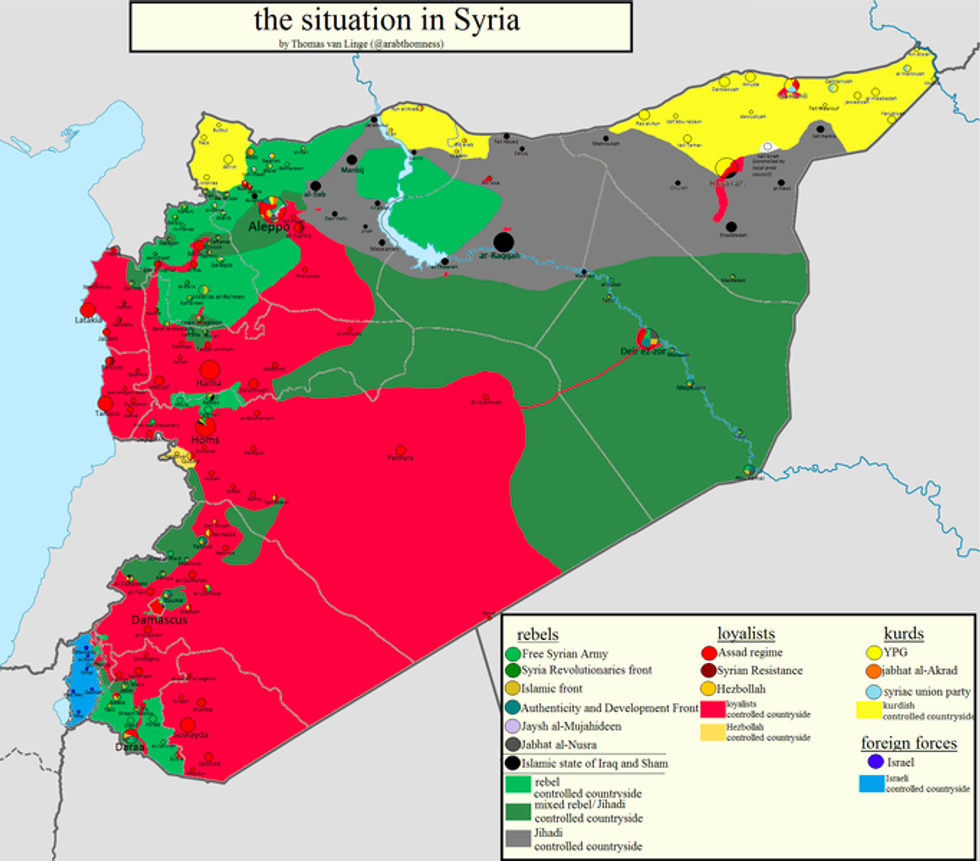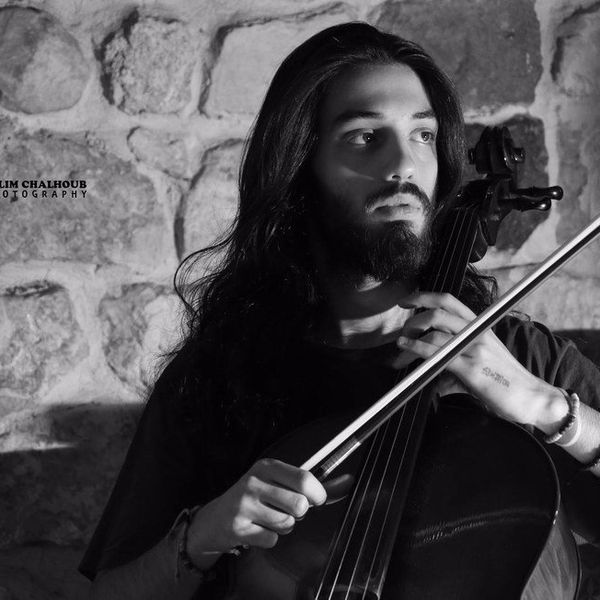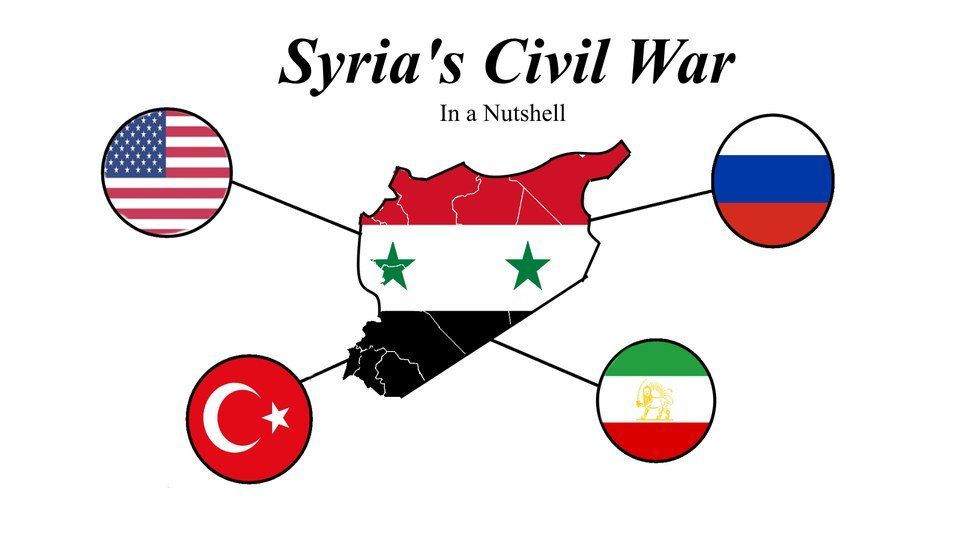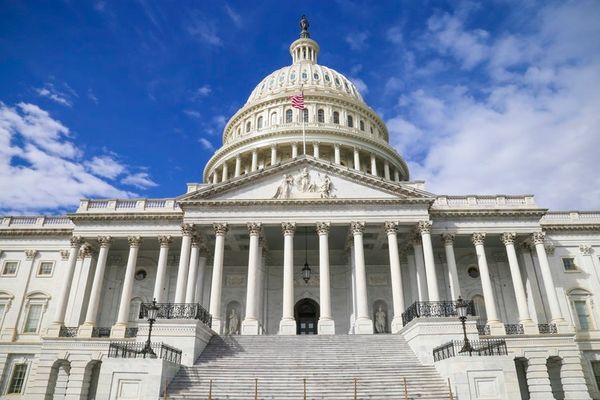In a Nutshell:
The Civil War in Syria has become of great importance to the world over the past few years.Over 4.8 million refugees have sought asylum since the war began. IS (Islamic State) or Daesh was born out of the conflict and has unleashed terror attacks in both the Middle East and around the world. Just this week the images of two Syrian brothers covered in ash and soot were seen, crying and hugging each other after a drone strike. Tensions are high and clearly so are the stakes. This article will give a synopsis of the events that have unfolded in Syria as well as a brief description of the chess game that the major powers of the world are playing there.
Here is a video by Kurzgesagt for more on the Refugee crises (warning of bias):
In 2010, Tunisia went through a violent revolution as they overthrew their government officials. This would be the first of a chain of revolutions and overthrows in the Middle East known as the Arab Spring. In 2011, Syria’s people began a revolution against the Bashar al Assad Regime, a family that had been in power for over half a century. Their intention was to create a democratic state. However, Assad would not step down, and a civil war began. Turkey has accused President Bashar al Assad of leading the killing of over 350,000 people; the Assad regime is also accused of human rights violations by the US. Russia has a keen interest in the Assad family and therefore shot down any resolutions critical of Assad. As the civil war ensued, refugees began to leave Syria, factions developed, sides were taken, and IS took advantage of a broken Syria.
In terms of sides it is quite difficult to ascertain exactly who is on whose side. There is the US-led coalition, the Assad Regime, as well as the self-proclaimed Islamic State (IS). This appears as three main sides. Here is a breakdown of the sides using the five countries with the biggest role:
According to a BBC report, both Iran and Russia want Assad to remain in power. Russia has key military bases in the area that it leases under Syria, and it would like to maintain these. Iran considers Assad to be their closest Arab ally, having provided Iran with weapons, oil and more. The US, Saudi Arabia and Turkey want Assad to step down, supporting rebel factions within Syria. The US claims Assad has committed human rights atrocities and that he cannot be in Syria’s future. Turkey has accused Assad of the deaths of thousands--they’ve been a critic of Assad since the start. Saudi Arabia has stated that no resolution to the conflict should keep Assad as president.
Then there are the factions within Syria itself. There is the group of different factions under the Syrian Democratic Forces, which include the YPG, YPJ, and Free Syrian Army Rebels. The YPG is the People's Protection Units, and YPJ stand for Women’s Protection Units, an all-women army; these two groups are commonly referred to as the Kurds. The Free Syrian Army are often called the Rebels, and they are in the northwestern part of the country. There is also the Syrian National Coalition. Each of these groups want some form of democracy implemented, though they disagree ideologically on some level, religious or political. The US supports each of these forces by giving them weaponry. Turkey, however, has been critical of the Kurdish Forces (YPG). This has been a source of tension between the US and Turkey in this conflict.
After the Democratic Forces, there are Hezbollah and Syria (Assad regime supporters). Russia supports the Assad Regime supporters, and the BBC reports that Iran is believed to be influential in Hezbollah's Decision to send troops to assist Assad regime forces.
The diagram below captures a little more simplistically the sides that have been taken by external countries and the Syrian factions. CJTF-OIR stands for all the other nations that are part of the US-led coalition.
There is still one more side to cover apart from the pro-Assad and anti-Assad sides. There is Daesh or the Islamic State, but since we’re only considering Syria, this is more accurately called ISIL (Islamic State In the Levant). The Islamic State has launched a campaign to create a caliphate in Syria. They have been labeled as a terrorist organization, and they have claimed responsibility for multiple attacks all over the Middle East, Europe, and the United States. They are seen as a highly belligerent opponent and are highly radicalized. In Syria, they have taken the city of Raqqa and have been a force that is pitting the different factions within Syria against each other.
Here is a map of the several factions as of 2015 to give you a geographical picture of what is going on:

The Chess Game:
The events that have unfolded in the past few days can give insight into how the different countries involved use these events to generate leverage in favor of their own goals, much like a chess game. Russia began conducting airstrikes on Aleppo a year ago, a city in the northwestern part of Syria predominantly controlled by the rebels whom Russia is against. Recently the rebel forces countered the siege and gained ground on regime forces (Economist). Reuters reported that Russia’s forces were indeed struggling to achieve their goal of moving the rebels out of Aleppo. Russia then decided to intensify its airstrikes, but from an Iranian base, as recently as August 16. This was politically sensitive for the Iranians, whose constitution strictly forbids foreign use of their air base (Reuters). This is when a gap opened up, and ties between Iran and Russia began to break as Rebels made progress. By August 22 Russia was no longer operating in that air base, with the Iranians stating that “Moscow had committed a betrayal of Trust.” Russia's military limits are slowly being reached, as ties with Iran take a hit. Now that Russia's move to intensify attacks on Aleppo seems to have backfired for the country, Russia is in search of a different method of carrying out plans in Syria.
This seemed beneficial for Turkey and the US: they make a move on peace talks as well as focus airstrikes on IS settlements to reduce their capabilities--a moment to take advantage of. However, on the same day (last Monday) Reuters reported that Turkey was not moving into IS territory, but rather, Kurdish Territory. As previously stated, Turkey is not kind to the Kurdish YPG forces; they have accused them of ethnic cleansing. It seems Turkey made the move, against the US’s wishes, with the US Pentagon stating that Turkey’s decision was “unacceptable and a source of deep concern” (Reuters). Turkey used what could have been a gap for peace talks and progress against IS as a way to forward its country’s own goals against the Kurds. Turkey made their move; the US was also careful, however, to try and maintain potential leverage created by Iran and Russia's situation by using more benevolent and careful wording.
The next day (Tuesday) the AP reported that the IS spokesman had been killed in Aleppo, Syria. A US defense official stated that an ISIL senior leader had been targeted in a recent airstrike. His death may have been by a US airstrike, though such details remain unconfirmed. The AP stated his death would be a major blow to IS. This was a big moment for the US military because it seems the US made a move in spite of Turkey’s lack of help.
Then the AP reported through Yahoo that “Clashes subside in Syria between Turkish, Kurdish forces.” Both the French president and a top US general condemned Turkey's move to fight Kurdish forces instead of focusing on IS. The US now has the Turkish and Kurdish forces fighting on different sides of the country away from each other, both focusing their energy on counter IS attacks. The US used its coalition's strength to negotiate with a weakened Turkey in order to achieve their goal of limiting IS capabilities and strongholds in Syria.
So in a brief summary: Russia made the move to go to Iran to intensify their attacks on Aleppo. Instead, they ended up hurting their relationship with their ally and showed their military’s limits. Turkey then made the move to advance against Kurdish forces, losing focus on IS. The US then rebuked Turkey and continued to hit IS in spite of Turkey's move. The US then used the power of its coalition and Turkey's current weakness to separate the Kurds and Turks and hopefully make progress on IS, as well as open up future potential negotiations. All of this occurred from last Wednesday to this Wednesday.






















